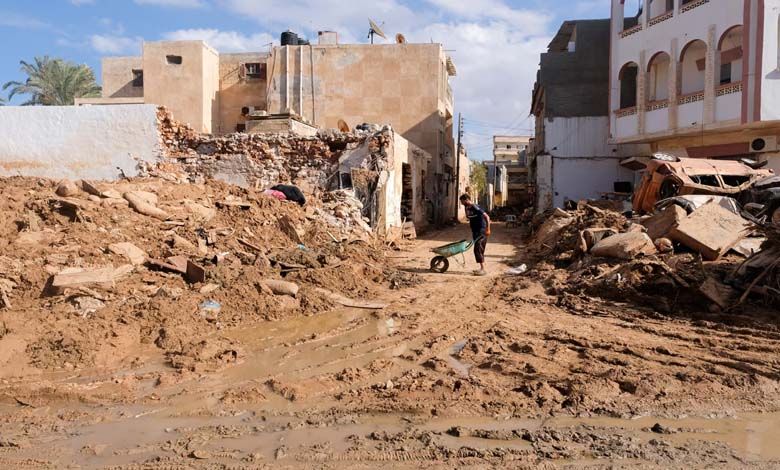After the catastrophe of ‘Daniel’… Efforts to advance the reconciliation process in Libya

The Libyan Presidential Council, led by Mohamed al-Menfi, seeks to advance the national reconciliation process through the preparation of a comprehensive conference initiated in the Republic of the Congo, Brazzaville, last July.
Council member Walid El-Lafi stated on Sunday that “the Presidential Council is looking forward to fulfilling its responsibility in the national reconciliation process and is exerting its utmost efforts to ensure its success and to achieve its goals for the benefit of the Libyan people.”
During his chairmanship of a preparatory committee meeting for the reconciliation conference, El-Lafi added, “This is a new and important stage in preparing for the comprehensive conference, in which all spectrums of the Libyan people will participate.”
Libyan political activist Osman Al-Badri commented on these efforts, saying, “The Presidential Council is primarily responsible for the national reconciliation file. In my view, this file has not progressed in an ideal or desired manner, but rather it is moving very slowly in the opposite direction.”
He added, “We believe that this period is optimal for implementing national reconciliation, especially since people are tired of wars and divisions and are seeking reunification. Therefore, there is a possibility of working on this file and succeeding in it by repairing the damage and providing compensation. I believe that the Presidential Council can reinvigorate this file and benefit from the ongoing events, especially the Gaza war, which has regional implications and could bring about geopolitical changes.”
However, some Libyan politicians believe that the Presidential Council has failed to make any significant progress in the reconciliation file, which may affect other aspects such as the presidential and parliamentary elections.
The spokesperson for the Libyan National Forces Initiative, Mohamed Shubar, stated, “The Presidential Council has failed to accomplish the national reconciliation file over the past years.”
Shubar believes that the national reconciliation file has become the Council’s lifeline to remain in power. What Libya needs is a strong authority that can establish security and pave the way for elections, as called for by the UN Special Envoy, Abdoulaye Bathily, to bring together the main parties to achieve this in the near future.












